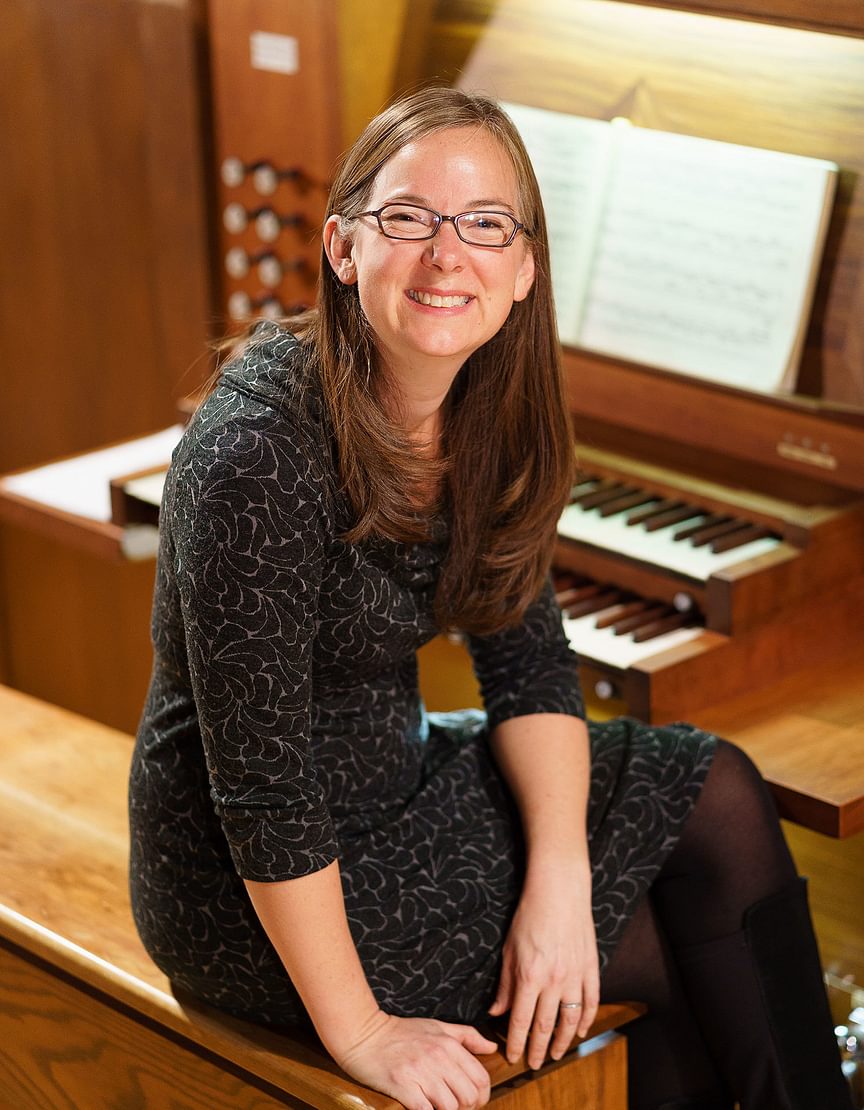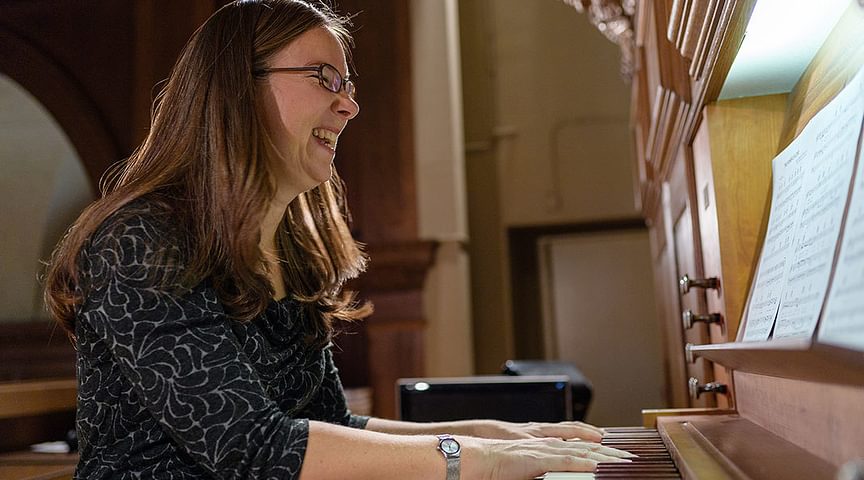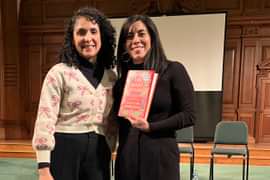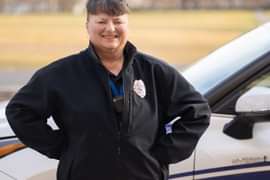
January 15, 2019
Pipe dreams
Getting to know Academy organist and music faculty member Abbey Siegfriedby Kristin Bair O’Keeffe
When Abbey Siegfried was eight years old, her grandparents bought a mobile home to travel in during their retirement. Before selling all their earthly possessions, they gave each of their children one object from their childhood home. Siegfried’s mother got a 1980s electronic organ. The story goes that once Siegfried started playing, that was that.
Today, Siegfried is the school organist; conductor of Fidelio and the Phillips Academy Chorus; a music department faculty member; faculty advisor to the a cappella groups and the Academy Gospel Choir; musical director for Academy musicals; a residential house counselor; and the liaison to the Abbot Academy Fund. She is also the recipient of the F.C. Robertson Instructorship.
Tell me about your childhood.
I grew up in Iowa City, Iowa—a university town. My parents were both educators, both doctorates. My dad is an environmental scientist who helped write the Clean Water Act. My mom wound up in educational administration. The University of Iowa has a big music program, so I was thrust into all sorts of big situations early. I took lessons with people affiliated with the graduate program, and, in middle school, I was playing for the doctoral seminars.
Were you ever intimidated?
The thing that the organ teaches you, because it’s so big and so loud, is that you can never be afraid. If you make a mistake, everybody can hear it. It’s an awesome metaphor.
What inspired you to become a teacher?
I always say that I love music—obviously, I’m a musician—but I love people more than I love music. I could have followed a performance trajectory, but for me, there always has to be a human connection.
Which teacher inspired you most?
My teacher in Germany, Zsigmond Szathmary. [Siegfried has her doctorate in organ performance from the University of Washington and as the winner of the Rotary Ambassadorial Scholarship, she attended the University of Music in Freiburg, Germany.] He was Hungarian and he fled Hungary right after World War II, before the Iron Curtain went down. His career was centered on new music, and he premiered all kinds of new pieces by European composers. I played a lot of contemporary music with him, and I became very passionate about it, especially championing music by American composers. I try to do the same with the choirs here. The organ is such a historic instrument and you’re always burdened by history with it. My teacher liberated it and made it something new.
What’s the first piece you remember playing, mastering, and falling in love with?
When I was young, my teacher was very good about letting me play pop music in addition to classical music. I played the classical pieces every organist starts on, like Bach’s Little Preludes and Fugues, but I also played Michael Jackson’s “Beat It” and Huey Lewis’s “The Power of Love” from Back to the Future.
Happiest teaching moment?
Tuesday nights here in the chorus room. It’s electric. It’s loud and there’s energy bouncing off the walls. Every night that I conduct, I leave happy.
Toughest teaching moment?
Grappling with the plot of Ragtime with the cast. I had the most phenomenal discussions with those students about the fact that while this story takes place in the early 1900s, all of the issues it wrestles with are present in our lives today: racism, immigration, the power dynamics of class. The students had to act some really ugly characters and stories, but they made it okay for each other, the heroes and the villains. They held each other through that process.
Favorite place on campus?
Walking into Cochran Chapel in the morning when no one’s here. There’s a stillness and a quiet. I like to imagine that this was the place where all the boys used to gather and now it is the place where everybody gathers.

You get to invite three Andover people to a dinner party. Who do you invite? What do you talk about?
Carl Pfatteicher, the first official school organist. He’s kind of considered the grandfather of the music department. Sue Lloyd. She did many things at Abbot and Andover, but chief among them was music teacher and conductor of Fidelio. Fidelio came from Abbot and is an Abbot tradition. And finally, William Thomas, beloved faculty emeritus and former music department chair. I never got to meet him. I would talk to them about what music meant for students at Andover and Abbot and then the merged Andover.
How do you juggle the many roles you have on campus?
Honestly, I don’t know. I do know that I love it all. I’m in a place in my life where I’m just happy to be doing what I’m doing. And that’s kind of the gift of Andover.
What have you learned from your students?
That everyone has a story. That every story is worth taking the time to get to know. And that there is hope for the world.
Kristin Bair O’Keeffe, former editor of Andover magazine, is a freelance writer, teacher, and novelist. Follow her on Twitter and Instagram @kbairokeeffe.





